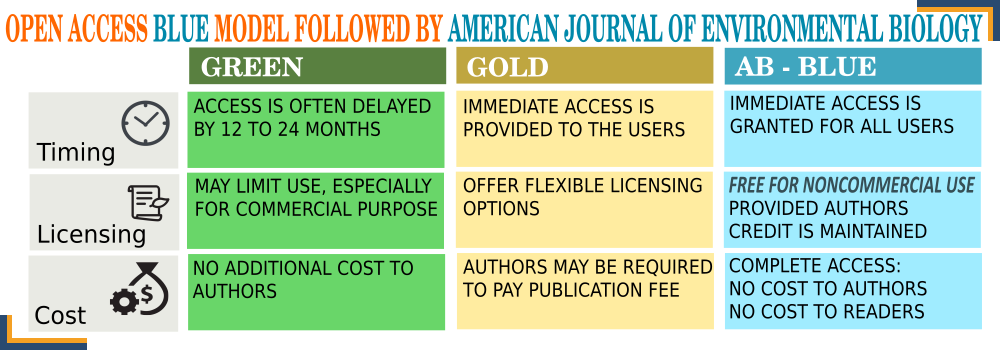AJEB through its open access journal is committed to provide completely free and fair access to everyone and anyone. Through our global network, we extend the reach of your research to anyone who is interested, in every country, every city, every town and every village. Publishing with AJEB is completely free, there are no associated cost. All articles becomes instantly available upon acceptance.
Why we need open access?
We need open access to avoid mainly two situations:
1. The cost can act as a barrier, for authors high publication charges can restrict their choice for a good journal while on other hand fees for access can limit the audience pool. These kinds of barriers unjustifiably creates haves and have-nots in the academic community which is highly undesirable. By removing all costs and fee we at academic block remove all the barriers between authors and readers.
2. Most of the research is funded by taxpayers around the globe. It is unjust to expect people to pay for the research and then pay again to access the outcomes. This kind of double taxation needs to be avoided. We at academic block enables a free flow of research, people can access their own funded research at no cost, anywhere.
Advantages of open access with AJEB

Complaint with Grant rules:
Most of the research is funded through public money. Keeping this in mind many government funding agencies encourage and sometime mandates researchers to publish their findings in open access platforms. Enabling readers to access it free of cost, and saving taxpayers money that would otherwise go towards paying access fees of different journals or publishers.
More citations:
Recent articles have confirmed through available data that open access literature is viewed and downloaded more often than the subscription based access. It is convincingly shown that open access papers receive more citations in comparison. In a recent article published in “Nature Communications” it was found that open access articles are viewed three times more often.
Quick review process:
Due to the nature of open access publishing, more academicians are willing to volunteer in the review process. This leads to a clean and quicker review process. It is a common fact that average publication time for open access journals is 40% less when compared with non-open access options. We give high priority to the timely response during the review, for majority of the cases, review process is completed within 5 to 8 weeks.
Open access AJEB Blue model:
AJEB follows its own Blue open access model, in our opinion it is the best available model. When you publish with us, after acceptance your article becomes immediately available to the readers without any holding period, unlike the green access model. Also, there is no associated fee either for the authors or the readers, unlike the gold access model. You can view the image below to understand how our blue access model is better than currently used green or gold open access models.

History of Open Access
Policies related to Open Access have their humble beginning mainly from three declarations:
1. Budapest Open Access Initiative (2002)
2. Bethesda Statement on Open Access Publishing (2003)
3. Berlin Declaration on Open Access to Knowledge in the Sciences and Humanities (2003)
The policies formulated in these gatherings are the foundation stone of modern open access movement. To learn more, you can participate online in the Open Access Week which is an international event mostly organized in October every year. It offers a great platform for researchers, students, librarians, and others to showcase their ideas and support free sharing. It provides an excellent opportunity to learn about open access and support free sharing of knowledge.